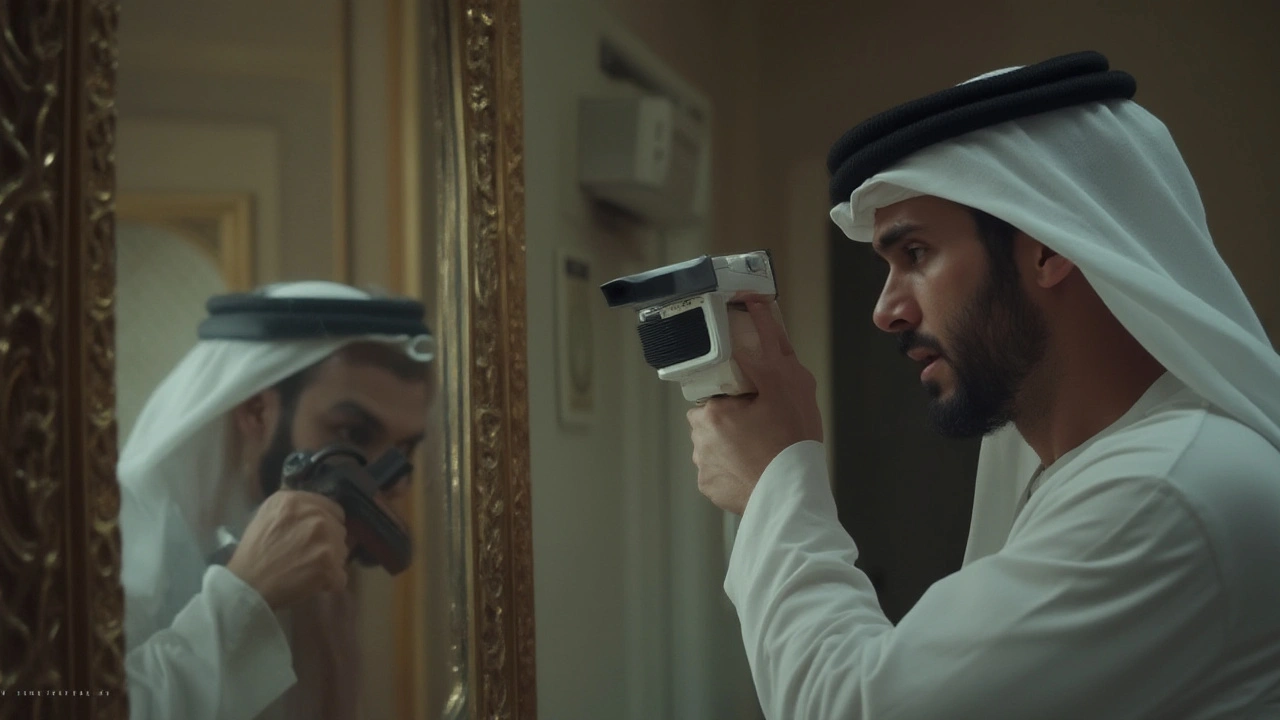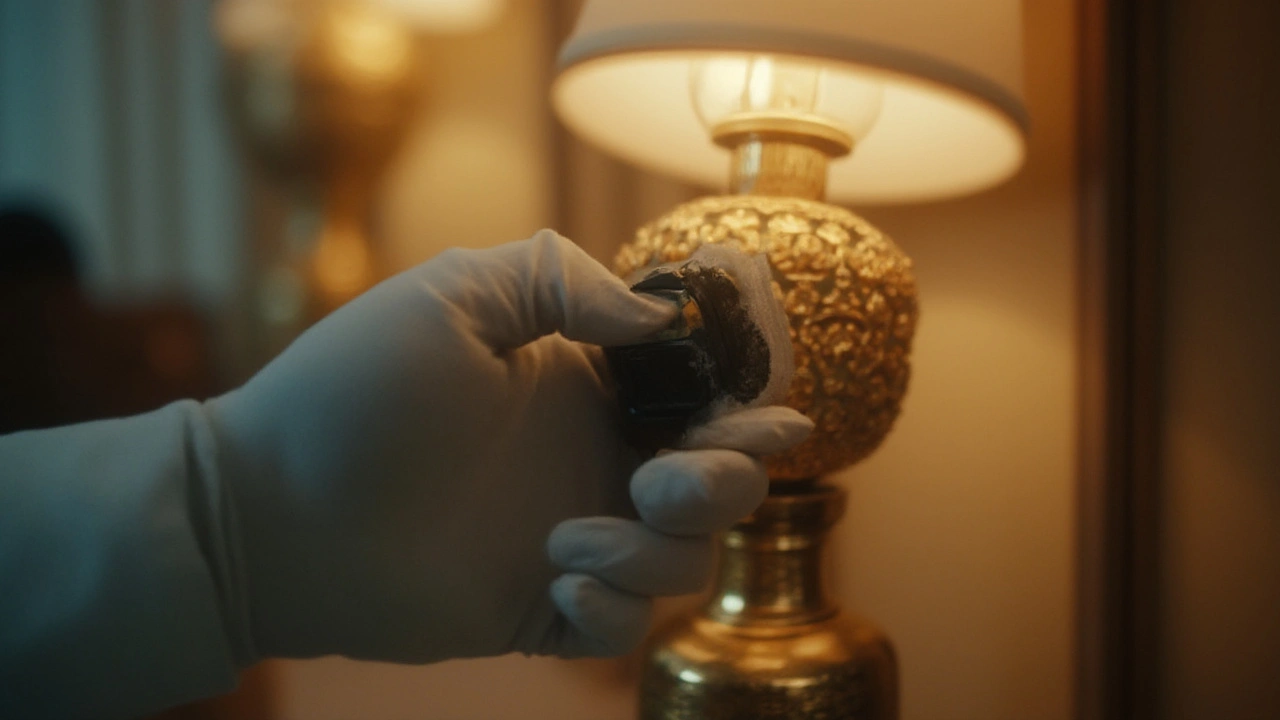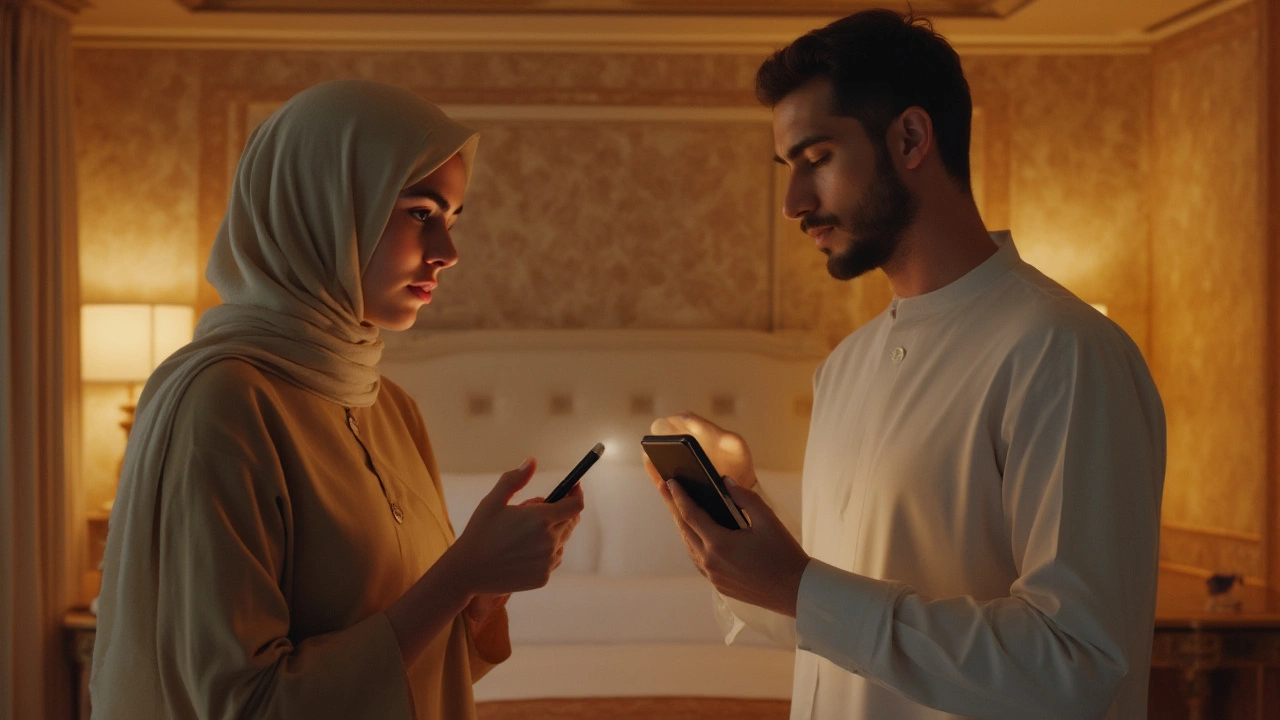Anyone who’s read the news lately knows the fear isn’t so far-fetched: people keep stumbling on hidden cameras in hotel rooms, Airbnbs—even changing rooms. A 2023 survey by a leading travel security firm found that out of every 2,000 travelers, at least 1 in 20 reported spotting or suspecting covert surveillance equipment. Suddenly, that new city or swanky suite doesn't feel so private. Tech has gotten sneakier, but that doesn’t mean you have to give up your personal space every time you crash somewhere new. A few minutes once you walk into your room can make a world of difference, for your peace of mind and maybe even your safety.
Why Hidden Cameras Are Showing Up in Hotels
Most people think spying equipment is something out of a spy movie, but the truth is, it’s shockingly easy for anyone to order a hidden camera online. They come disguised as things you never look twice at: phone chargers, smoke detectors, alarm clocks, lamp shades, even pens. A top-selling model right now is a fake USB charger—plug it into the wall and the small, barely visible lens records HD video. 2024’s market made $4.2 billion globally, up over 11% from just two years before.
So why would anyone go through the effort? Sometimes it’s a creepy voyeur scenario, but other times it's about security, insurance policies, or (in rare cases) even blackmail or theft. Some dodgy hotel owners may try to spy on guests by hiding small cameras to “prevent property damage,” but there’s absolutely no excuse for invading someone’s privacy this way. Even if you’re renting from regular folks on Airbnb, you’re at risk. Platforms like Airbnb ban all cameras in private areas, but last year, over 180 reported incidents still hit the headlines.
Here’s the scary part: most people never actually notice these cameras. The new trend is for lens openings smaller than a pinhead, and wireless units that transmit video straight to a phone or laptop, so there are no cords or big memory cards to catch. The only time people usually find these devices is by dumb luck, or because they’re actively looking for them.
Bottom line? Don’t assume you’re paranoid if you want to check your room. You’re being smart, and maybe a little ahead of the curve. Hotels are supposed to value privacy, but mistakes and bad actors still get through.
Red Flags: Warning Signs You Might Not Be Alone
Those hidden cameras don’t just sprinkle themselves in any random hotel room. If you know what to look out for, your odds of spotting them shoot up. Ever noticed a blinking LED in the weirdest spot? Heard a faint clicking sound, almost like a phone camera? Maybe a random “smoke detector” in the corner of the bathroom, or a random piece of decor on a surface most people never use?
Here’s what a surveillance expert said in a 2024 BBC interview: "Suspicious objects are found most often where guests undress or sleep—especially near mirrors, TVs, or plugs." Makes sense, right? Thieves or voyeurs want clear, undisturbed views. So, if you spot extra gadgets or double-up items (like two smoke detectors on one ceiling), trust your gut and start poking around.
- Unusual objects that seem out of place (alarm clocks facing the bed, smoke alarms in showers, picture frames angled oddly)
- Lens reflections or tiny holes, especially near eye-level in high-privacy zones
- Strange wires or cables running inside non-electronic items
- LED lights or tiny buttons on devices that shouldn’t have them
- Noises when you move or speak, such as audio feedback from a bugging device
- Items that magically 'reset' to their positions every time housekeeping visits
A 2022 test by security pros in a hotel chain found that almost 74% of hidden cameras were tucked inside ordinary hospitality gadgets like TV boxes, wall adapters, and desk lamps. Most were placed under 2 meters from beds or bathroom doors, so spots you interact with a lot. Quick tip: Guest bathrooms, changing nooks, or bedrooms are the number one hot spots. Don’t see why a safety sensor would be there? Take a closer look.

How to Search Your Room Like a Pro
No need to bust out spy-level gear or crawl around on hands and knees—simple techniques are enough for most of us. Start the moment you enter, before you even fully unpack. Trust your senses. Don’t ignore that tingling, something’s-off feeling. Here’s a breakdown of a solid room sweep:
- Dim the lights. Turn off or dim the lights. Eyes adjust quickly, and camera lenses may reflect hidden glints or tiny red/green dots. Sweep the room with your phone’s flashlight, slowly—look for pinpricks of reflection near objects like TVs, mirrors, and clocks.
- Check for double-ups and odd angles. Are there two clocks? Two smoke detectors? Roomy art frames with unexplainable wires? Anything angled so it points more at the bed than the rest of the furniture? Take a closer look.
- Inspect vents, power strips, electronics, and random plugs. Cameras love hiding in USB charging cubes, alarm clocks, and even tissue boxes. Unscrew vent covers, shine your flashlight in every corner. Fake smoke detectors became an epidemic in Asian hotels in late 2023, so don't overlook that weirdly new one.
- Test the mirrors. Hidden cameras often sit behind “two-way” mirrors. Put your fingertip against the glass. If there’s no gap between your finger and the reflection, it’s a red flag—you could be looking at a two-way. Normal mirrors always have a tiny gap.
- Listen for odd sounds. Any electrical hums, tiny clicks, or odd buzzing? Put your ear near wall devices or furniture. Some wireless cameras emit a faint noise while transmitting.
For the tech-wired crowd, you can take detection up a notch with gadgets. Hidden camera detectors use LEDs or radio frequency to spot wireless signals. The $30-70 range models can pick up most “spy” tech emitting Bluetooth, Wi-Fi, or 3G/4G signals. Open the app store and check for ‘network scanner’ apps—these map out all devices transmitting Wi-Fi near you, making it easier to spot rogue connections. Some highly-rated apps are ‘Fing’ and ‘Detectify’, but remember: ultra-sneaky cameras using local memory cards won’t be spotted this way.
Wearable options are emerging too—one 2024 Kickstarter pushed out a keychain detector with a flashing LED that shows hidden lenses instantly. Pretty cool.
The Fastest Ways to Scan: Everyday Tools and Apps
Turns out you don’t need a trunk full of James Bond gadgets to find a hidden camera. Most of the best tricks involve things you already have, like your phone or a simple flashlight. Tourist forums are full of first-hand stories—like a couple in Milan who found a disguised webcam in a cheap clock radio using just a phone screen and a dark room.
Here’s the toolkit:
- Phone flashlight—shine it into tiny openings, especially on smoke detectors, TV boxes, plugs, or speaker grilles.
- Front-facing phone camera—some hidden infrared (night vision) LEDs are invisible to your eye, but not your camera’s sensor. Turn off all lights and look through your phone’s camera; faint reddish dots may show up if there’s IR lighting from a hidden cam.
- Hand mirror—use it to check under sinks, tables, behind big TVs, or the top of wardrobes (another favorite hiding spot).
- Apps to sweep for rogue devices, as listed earlier. If your hotel Wi-Fi lists a mystery device with a weird name, that’s suspicious.
- Laser pointer (if you have one)—concentrated light can reveal mini lenses hiding in fake smoke alarms or painted objects.
Want the hard data? In a 2024 consumer test, using a flashlight sweep correctly detected 63% of intentionally hidden cameras, while the IR phone trick worked 70% of the time. Professional RF detectors grabbed even more—but those run at least $100. Truth is, a few diligent minutes with regular gear work wonders for most travelers.
| Detection Method | Success Rate (2024 consumer test, %) |
|---|---|
| Flashlight/Lens Glint | 63 |
| IR LED via Phone | 70 |
| Network/App Scan | 48 |
| Professional RF Detector | 92 |
Here’s something that goes wrong: people try and block a suspicious camera with tape or a towel—wrong move. If you block a device and the person behind it is watching live or keeping tabs, you just tipped them off and could face trouble from management. Instead, document it with photos or videos, and immediately report it.

If You Find a Hidden Camera: What’s Next?
If there’s any sign at all of a hidden camera in your room, don’t downplay it—acting quickly is the best thing you can do. Take clear, close-up photos and short videos (if it’s blinking, reflecting, or obviously disguised). Do not touch, unplug, or move it before snapping evidence. This protects you later if you need proof for the hotel, for police, or even an online platform like Airbnb.
Now, call the front desk or platform host, and demand to speak to a manager right away. Ask for a new room, preferably far from the original and ideally in another part of the building. Writing down the names of all staff you speak with can make things easier if there’s any fallout. Keep your cool, and if staff refuse to help or accuse you of causing trouble, escalate quickly—ask for a written statement or the incident policy.
Does this ever go to court? Absolutely. In 2023, a lawsuit in Florida ended up with a $1.6 million payout to guests after cameras were found in a boutique hotel chain. Local police get involved if there’s evidence of illegal recording, and major hotel platforms face huge fines and threats to their reputations if they don’t react quickly. Always consider filing a police report, especially if you believe you were recorded in private areas.
Document everything. Keep screenshots, correspondences, even receipts for the uncomfortable night. Tell your travel insurance, if you have it. Guests have even scored free upgrades or major discounts when hotels realized they handled the situation poorly.
The most important thing isn’t just about catching a bad actor—it’s about protecting your right to privacy. No one should ever feel watched while they sleep, shower, or change. And if you’re ever unsure, just switch hotels. A little inconvenience now is better than stressing for the rest of your trip.
